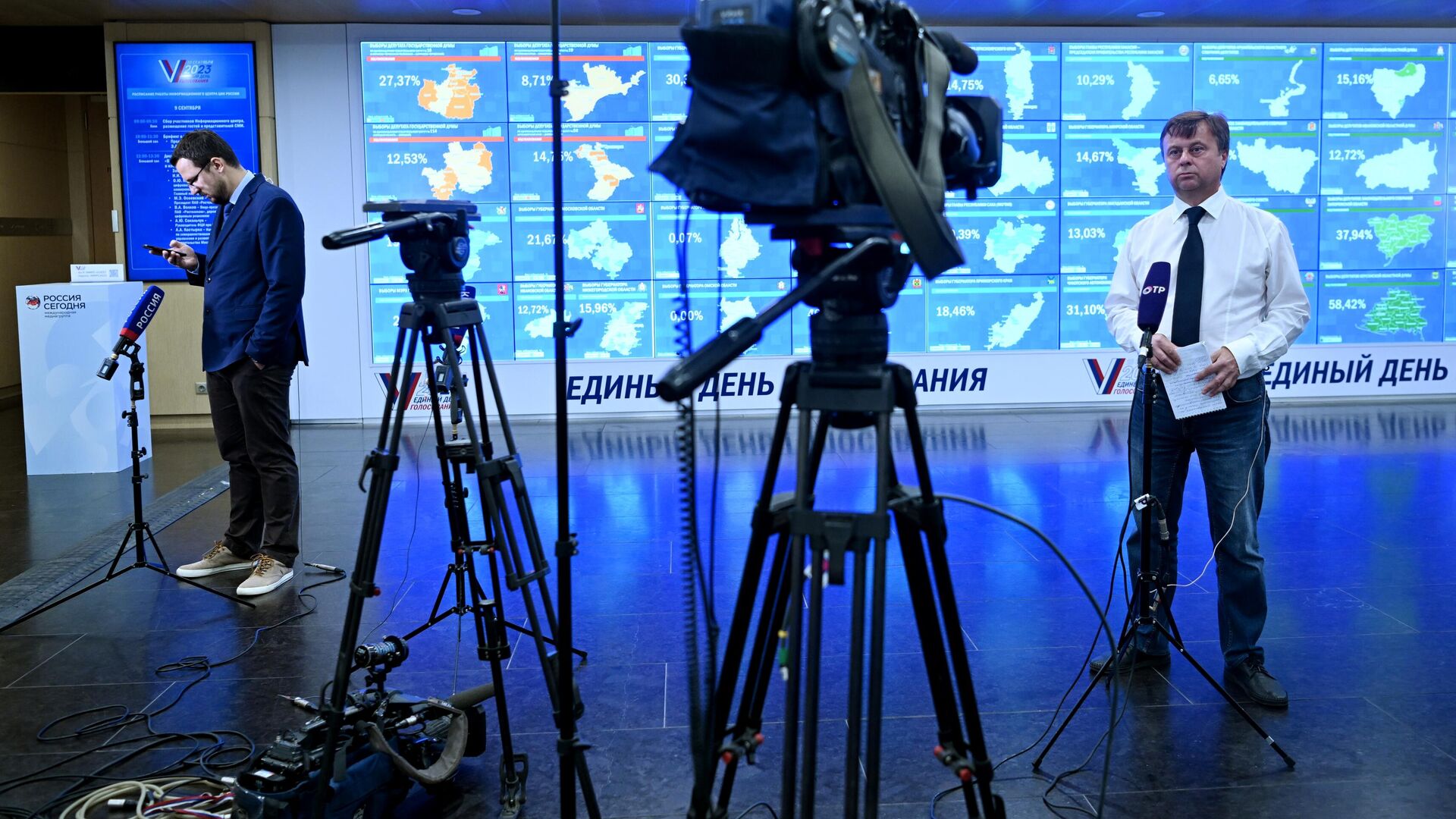Freedom of Press Attacks: Brazilian Journalists' Association Condemns Ukraine Threats
13:19 16.09.2023 (Updated: 13:25 16.09.2023)

© Sputnik . Kristina Kormilitsyna
/ Subscribe
The development follows the recent release of a video message by Ukrainian military's spokesperson Sarah Ashton-Cirillo, in which the speaker threatened Russian and pro-Russian journalists with violence. Calling the reporters "war criminal propagandists," Ashton-Cirillo claimed that they will be "hunted down" and "justice will be served."
The president of the Brazilian National Federation of Journalists (FENAJ), Samira de Castro, described the recent threats made by the spokesperson of the Ukrainian Armed Forces, former US journalist Sarah Ashton-Cirillo, against Russian journalists as "deplorable".
According to the president, Ashton-Cirillo's statements are not what could be expected from a healthy democratic government and undermine the freedom of the press guaranteed by democratic values.
"It is always very worrying when any government agency criticizes the work of journalists. In the context of military conflicts, conflicts between two countries, it is even worse to try to accuse journalists, who are doing their job of conveying information of general interest to the public, of any participation in these military actions. Although one can criticize certain materials, criminalizing the work of journalists is not a healthy path for any country that calls itself democratic," Castro said in an interview with Sputnik.
In a video circulating on social media this Thursday, Ashton-Cirillo made serious threats against Russian journalists, saying that they will be "hunted down, and justice will be served." In particular, the spokesperson said that next week the world will see Russia's "favorite criminal propagandist" "pay" for the country's "crimes."
At first Ashton-Cirillo did not name the alleged victim, but later specified that threats were addressed to the military correspondent of one of the Russian newspapers Alexander Kots, the official representative of the Ministry of Foreign Affairs Maria Zakharova and the "head for Human Rights" of Russia (probably, referring to the head of the Human Rights Council Valery Fadeev).
"The statements made by the Ukrainian authorities in an attempt to discredit Russian journalists are deplorable. And they undermine freedom of the press and interfere with the free professional activity of journalists," Castro said, while advocating for the creation of a special UN convention to ensure the safety of journalists and freedom of the press to "meet the public's need for information while protecting its journalists."
According to Castro, Brazil has also seen a series of attacks on the work of journalists in recent years.
In this regard, she added, there is a need for global campaigns aimed at raising the value of journalism, "So that civil society understands that when a media worker is attacked, the target of the attack is its [the public's] right to access information,."
Ashton-Cirillo's video message did not go unnoticed in Russia. The spokeswoman for the Russian Foreign Ministry, Maria Zakharova, stressed that the statement is further proof of the terrorist activities of the US-backed Kiev regime and promised to send the video to various international organizations.

